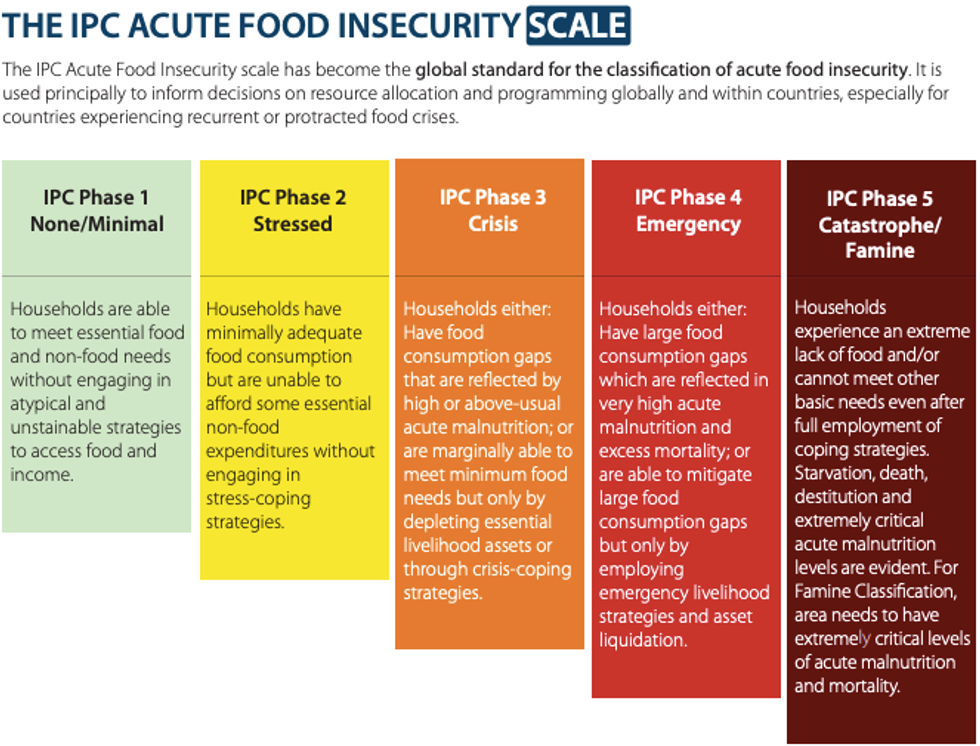The global number of people facing Phase 5—"Famine/Catastrophe," the highest level—in the Integrated Food Security Phase Classification (IPC) system went from 705,000 in 2023 to about 1.9 million this year, including projections through September.
About 1.1 million people in Gaza faced famine in March and April, while roughly 750,000 more recently did so in Sudan, which is locked in a gruesome civil war. South Sudan and Mali also had smaller areas of people facing food insecurity catastrophe.
Despite the figures, the U.N. hasn't formally declared a famine in Gaza, though many U.N. officials and experts have characterized the situation as such.
Though the Gaza famine numbers peaked in April, the situation remains extremely dire, according to Víctor Aguayo, UNICEF's director of child nutrition, who visited the besieged enclave last week.
"I walked through markets and neighborhoods—or what is left of them," Aguayo told reporters on Thursday. "I listened to the struggles of mothers and fathers to feed their children. And there is no doubt in my mind that the risk of famine and a large-scale severe nutrition crisis in Gaza is real."
Aguayo called for a cease-fire and humanitarian intervention, saying that "it's important to remember that the nearly half of Gaza's population suffering from this devastation are children."
"The nutrition situation in Gaza is one of the most severe that we have ever seen," he added.
Israeli forces have killed more than 41,000 Palestinians in the Gaza Strip in the last 11 months, displacing nearly the entire population of 2.2 million, often multiple times, and destroying much of the enclave's infrastructure. They've also restricted emergency aid into Gaza, according to a large number of reports.
Rights groups have argued that Israel has used starvation as a weapon of war—a war crime. U.N. experts have called it an "intentional and targeted starvation campaign."
Hamas and allied militant groups massacred more than 1,100 Israelis on October 7 and took roughly 250 hostages, dozens of whom are still being held. Israel's declared war aim is eradicating Hamas and returning the hostages. The effort has received widespread international condemnation, both from rights groups and multilateral institutions, including the International Court of Justice, which in January ordered Israel to prevent acts of genocide, and the International Criminal Court, which in May sought warrants for the arrest of Israeli and Hamas leaders.
The United States has been Israel's chief diplomatic ally and weapons supplier throughout the 11-month assault, with the Biden administration approving another $20 billion in arms transfers last month.
Thursday's GRFC update shows that Sudan, like Gaza, faces a large-scale humanitarian crisis. As of August, 8.5 million Sudanese faced Phase 4—"Emergency"—conditions of food insecurity, far more than any other country in the world. Famine has been declared in a refugee camp near El Fasher in Darfur and is expected to last through October, the report says.
The two main warring parties are the Sudanese Armed Forces (SAF), the state's official military, and the Rapid Support Forces (RSF), a paramilitary group. The conflict began in April 2023 and has displaced more than 10 million people, just counting those who've stayed in the country.
As in Gaza, experts have accused armed forces of restricting aid and using starvation as a weapon of war.
Kenneth Roth, former executive director of Human Rights Watch, responded to the GRFC update by declaring that the hunger crises in both Gaza and Sudan were by design.
"That's because of the starvation strategy of the Israeli government and Sudanese forces," he wrote on social media.
The IPC classification system requires that an area meet three criteria to reach the Phase 5 "Famine" stage: 20% of households must face extreme lack of food, 30% of children must suffer from acute malnutrition, and two adults or four children out of 10,000 people must die each day due to starvation-related causes.

Recent formal declarations of famine by the United Nations have occurred in an area of South Sudan in 2017 and two regions of Somalia in 2011.



